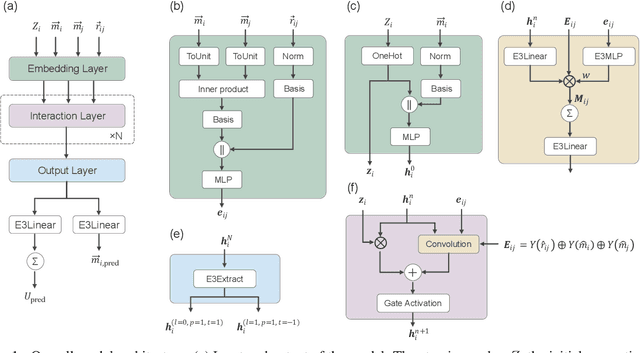SpinMultiNet: Neural Network Potential Incorporating Spin Degrees of Freedom with Multi-Task Learning
Paper and Code
Sep 05, 2024



Neural Network Potentials (NNPs) have attracted significant attention as a method for accelerating density functional theory (DFT) calculations. However, conventional NNP models typically do not incorporate spin degrees of freedom, limiting their applicability to systems where spin states critically influence material properties, such as transition metal oxides. This study introduces SpinMultiNet, a novel NNP model that integrates spin degrees of freedom through multi-task learning. SpinMultiNet achieves accurate predictions without relying on correct spin values obtained from DFT calculations. Instead, it utilizes initial spin estimates as input and leverages multi-task learning to optimize the spin latent representation while maintaining both $E(3)$ and time-reversal equivariance. Validation on a dataset of transition metal oxides demonstrates the high predictive accuracy of SpinMultiNet. The model successfully reproduces the energy ordering of stable spin configurations originating from superexchange interactions and accurately captures the rhombohedral distortion of the rocksalt structure. These results pave the way for new possibilities in materials simulations that consider spin degrees of freedom, promising future applications in large-scale simulations of various material systems, including magnetic materials.
 Add to Chrome
Add to Chrome Add to Firefox
Add to Firefox Add to Edge
Add to Edge